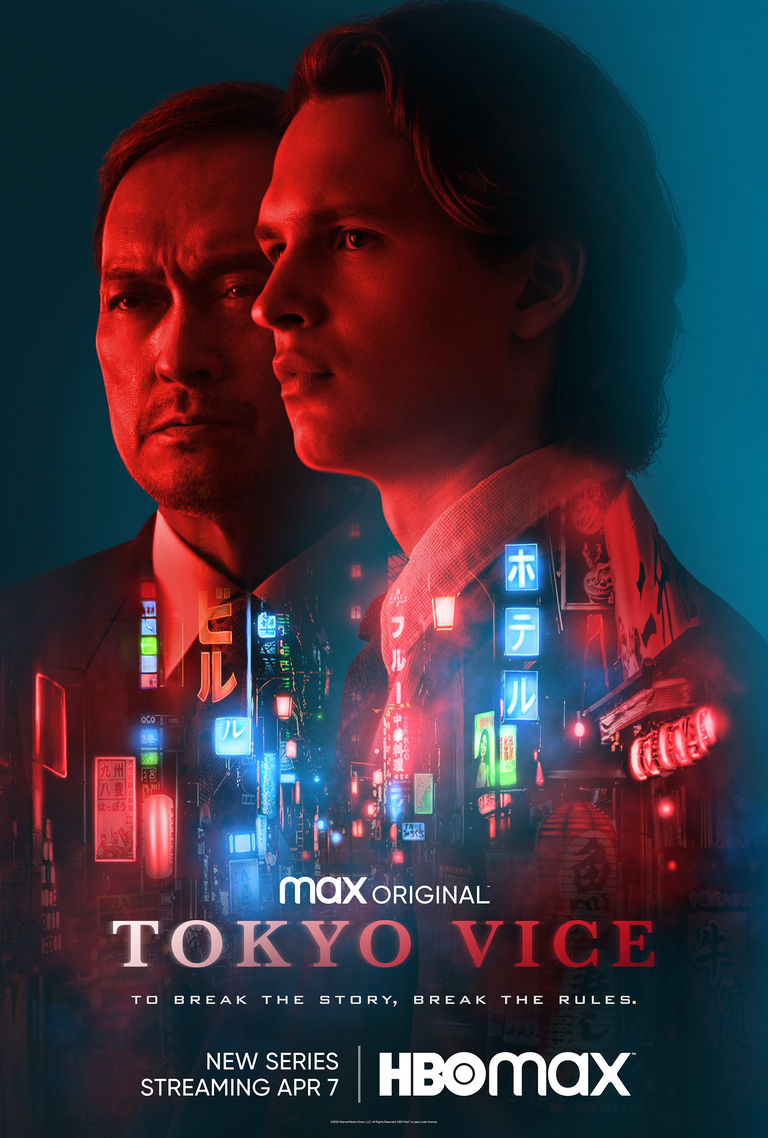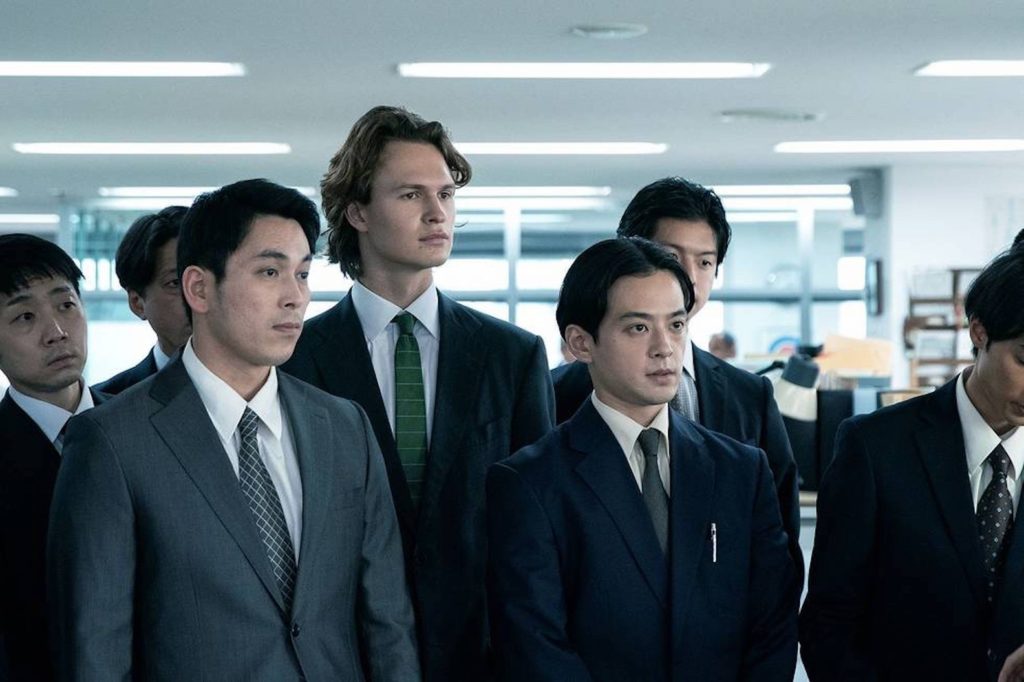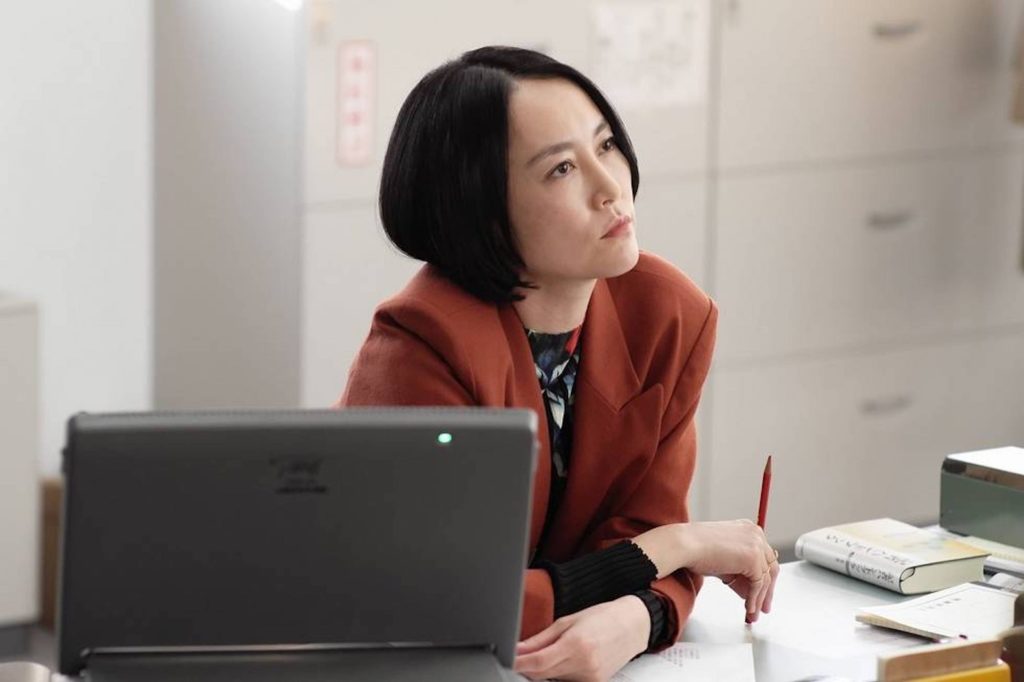
Every culture operates differently, and while there may be similarities between even the most radical opposite societies, transitioning into something unfamiliar can be extremely jarring. Even if someone is completely prepared for a shift that may not be natural, those they interact with may doubt and judge them, hindering their potential success by not giving them the opportunity to prove their competence. Perseverance and endurance are crucial, but overcoming resistance to entry by an outsider can be arduous and daunting, as compelling explored in the new HBO Max series Tokyo Vice.
This series’ logline describes it as “loosely inspired by American journalist Jake Adelstein’s non-fiction first-hand account of the Tokyo Metropolitan Police beat.” While this reviewer admittedly has never been to Japan and has no knowledge of how crime reporting works in the country, this show does feel extremely transporting, presenting an extraordinarily in-depth look at how the institutions of journalism and media are markedly different from how they operate in America, something that Adelstein evidently noted during his time living in Japan.

While this story is framed around Adelstein’s experiences, it is more than just his story. There are numerous supporting characters with equally interesting backstories and complicated relationships with the law. Unlike a typical tourist or foreigner, Adelstein makes tremendous efforts not to have his identity accommodated. When he checks in to take an important exam, he is told that the test is in Japanese, and that is one of countless instances in which it is assumed that he does not know the language (he very much does) and that he will need things explained to him since he couldn’t possibly get it.
There is humor to be found in Adelstein’s struggle to fit in, which often comes from small language mistakes that others make when speaking with him in English. When a colleague suggests they go “pick up chickens” after work and doubles down on that being the expression even after Adelstein notes that it is “chicks,” Adelstein laughs and urges him to trust him. He becomes the butt of the joke at other times, like when he makes a typically American off-color remark about having sex with someone’s mother and is asked to explain what he means by that, realizing shortly later that he has indeed been fully understood.

That lightheartedness is critical in making this an inviting and accessible experience, because much of what Adelstein sees at work is unsettling and disturbing. He finds his articles chopped up with red ink and deemed not fit for print, and his repeated attempts to push back against the way of doing things, which includes deeming that there are no murders in Japan, is met with stern warnings to stop looking into what powerful people don’t want investigated. While there is violence, it doesn’t feel gratuitous, which only makes its presence more unnerving given that it feels distinctly realistic.
There is strong talent assembled on both sides of the camera. Elgort, best known for Baby Driver and West Side Story, has a fitting demeanor to play Adelstein, curious and mildly cocky but willing to do the work to understand his environment. Among the Japanese cast, the two most internationally recognizable faces are Oscar nominees Rinko Kikuchi and Ken Watanabe, who portray characters with intriguing relationships to Adelstein that initially feel adversarial but reveal a more complex depth. Rachel Keller, who impressed in Legion, is another American with secrets of her own who approaches her situation in a different way than Adelstein does. Michael Mann, known for Miami Vice and Heat, among others, serves as director for the first episode, bringing a distinct moodiness and style to the show, one that is smoothly continued by Josef Kubota Wladyka, who we spoke to last year for his Tribeca hit Catch the Fair One and who directs episodes two and three. There is much more to be discovered and unmasked after this show’s initial three-episode sampler, and those who make it through that first set will surely want to return for more.
Grade: B+
Check out more of Abe Friedtanzer’s articles.
The first three episodes of Tokyo Vice are now streaming on HBO Max, with new episodes premiering each Thursday.

